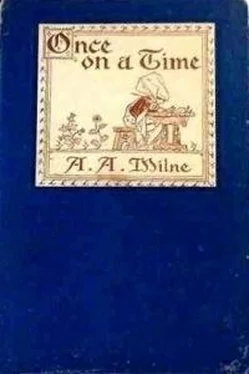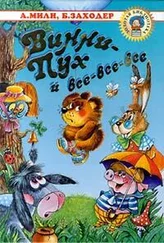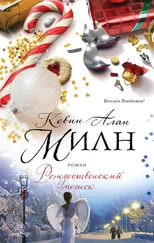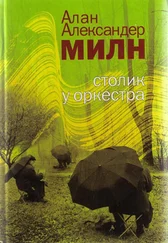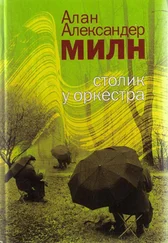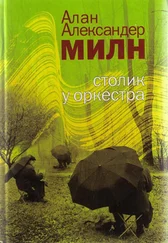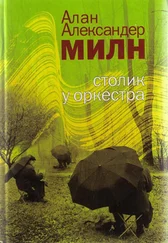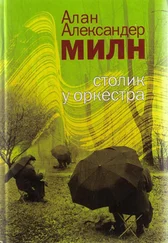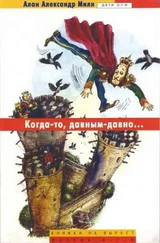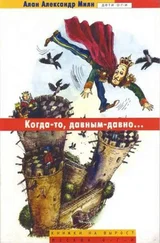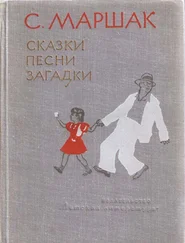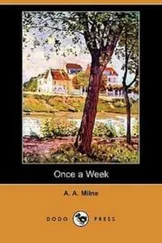How good to see Hyacinth again! Poor little Hyacinth left all alone; but there! she had had the Countess Belvane, a woman of great experience, to help her. Belvane! Should he risk it? How much had she thought of him while he was away? Hyacinth would be growing up and getting married soon. Life would be lonely in Euralia then, unless― Should he risk it?
What would Hyacinth say?
She was waiting for him at the gates of the castle. She had wanted Coronel to wait with her, but he had refused.
"We must offer the good news to him gradually," he said. "When a man has just come back from a successful campaign, he doesn't want to find a surprise like this waiting for him. Just think—we don't even know why the war is over—he must be longing to tell you that. Oh, he'll have a hundred things to tell you first; but then, when he says 'And what's been happening here while I've been away? Nothing much, I suppose?' then you can say―"
"Then I shall say, 'Nothing much; only Coronel.' And such a clever!"
"Oh, I have my ideas," said Coronel. "Well, I'll be out of the way somewhere. I think I'll go for a walk in the forest. Or shall I stay here, in the Countess's garden, and amuse myself with Udo? Anyhow, I'll give you an hour alone together first."
The cavalcade drew up in front of the castle. Handkerchiefs fluttered to them from the walls; trumpets were blown; hounds bayed. Down the steps came Hyacinth, all blue and gold, and flung herself into her father's arms.
"My dear child," said Merriwig as he patted her soothingly. "There, there! It's your old father come back again. H'r'm. There, there!" He patted her again, as though it were she and not himself who was in danger of breaking down. "My little Hyacinth! My own little girl!"
"Oh, Father, I am glad to have you back."
"There, there, my child. Now I must just say a few words to my men, and then we can tell each other all that has been happening."
He took a step forward and addressed his troops.
"Men of Euralia ( cheers ). We have returned from a long and arduous conflict ( cheers ) to the embraces ( loud cheers ) of our mothers and wives and daughters ( prolonged cheering )—as the case may be ( hear, hear ). In honour of our great victory I decree that, from now onwards, to–morrow shall be observed as a holiday throughout Euralia ( terrific cheering ). I bid you all now return to your homes, and I hope that you will find as warm a welcome there as I have found in mine." Here he turned and embraced his daughter again; and if his eye travelled over her shoulder in the direction of Belvane's garden, it is a small matter, and one for which the architect of the castle, no doubt, was principally to blame.
There was another storm of cheers, the battle–cry of Euralia, " Ho, ho, Merriwig! " was shouted from five hundred throats, and the men dispersed happily to their homes. Hyacinth and Merriwig went into the Palace.
"Now, Father," said Hyacinth later on, when Merriwig had changed his clothes and refreshed himself, "you've got to tell me all about it. I can hardly believe it's really over."
"Yes, yes. It's all over," said Merriwig heartily. "We shan't have any trouble in that direction again, I fancy."
"Do tell me, did the King of Barodia apologise?"
"He did better than that, he abdicated."
"Why?"
"Well," said Merriwig, remembering just in time, "I—er—killed him."
"Oh, Father, how rough of you."
"I don't think it hurt him very much, my dear. It was more a shock to his feelings than anything else. See, I have brought these home for you."
He produced from his pocket a small packet in tissue paper.
"Oh, how exciting! Whatever can it be?"
Merriwig unwrapped the paper, and disclosed a couple of ginger whiskers, neatly tied up with blue ribbon.
"Father!"
He picked out the left one, fons et origo (if he had known any Latin) of the war, and held it up for Hyacinth's inspection.
"There, you can see the place where Henry Smallnose's arrow bent it. By the way," he added, "Henry is marrying and settling down in Barodia. It is curious," he went on, "how after a war one's thoughts turn to matrimony." He glanced at his daughter to see how she would take this, but she was still engrossed with the whiskers.
"What am I going to do with them, Father? I can't plant them in the garden."
"I thought we might run them up the flagstaff, as we did in Barodia."
"Isn't that a little unkind now that the poor man's dead?"
Merriwig looked round him to see that there were no eavesdroppers.
"Can you keep a secret?" he asked mysteriously.
"Of course," said Hyacinth, deciding at once that it would not matter if she only told Coronel.
"Well, then, listen."
He told her of his secret journey to the King of Barodia's tent; he told her of the King of Barodia's letter; he told her more fully of his early duel with the King; he told her everything that he had said and done; and everything that everybody else had said and done to him; and his boyish pleasure in it all was so evident and so innocent, that even a stranger would have had nothing more reproachful for him than a smile. To Hyacinth he seemed the dearest of fathers and the most wonderful of kings.
And by and by the moment came of which Coronel had spoken.
"And now," said Merriwig, "tell me what you have all been doing with yourselves here. Nothing much, I suppose?"
He waited nervously, wondering if Hyacinth would realise that "all" was meant to include more particularly Belvane.
Hyacinth drew a stool up to her father's chair and sat down very close to him.
"Father," she said, stroking his hand where it rested on his knee, "I have got some news for you."
"Nothing about the Coun—nothing serious, I hope," said Merriwig, in alarm.
"It's rather serious, but it's rather nice. Father, dear, would you mind very much if I got married soon?"
"My dear, you shall get married as soon as you like. Let me see, there were six or seven Princes who came about it only the other day. I sent them off on adventures of some kind, but—dear me, yes, they ought to have been back by now. I suppose you haven't heard anything of them?"
"No, Father," said Hyacinth, with a little smile.
"Ah, well, no doubt they were unsuccessful. No matter, dear, we can easily find you plenty more suitors. Indeed, the subject has been very near my thoughts lately. We'll arrange a little competition, and let them know in the neighbouring countries; there'll be no lack of candidates. Let me see, there's that seven–headed bull; he's getting a little old now, but he was good enough for the last one. We might―"
"I don't want a suitor," said Hyacinth softly. "I have one."
Merriwig leant forward with eagerness.
"My dear, this is indeed news. Tell me all about it. Upon what quest did you send him?"
Hyacinth had felt this coming. Had she lived in modern times she would have expected the question, "What is his income?" A man must prove his worth in some way.
"I haven't sent him away at all yet," she said; "he's only just come. He's been very kind to me, and I'm sure you'll love him."
"Well, well, we'll arrange something for him. Perhaps that bull I was speaking of― By the way, who is he?"
"He comes from Araby, and his name is―"
"Udo, of course. Why didn't I think of him? An excellent arrangement, my dear."
"It isn't Udo, I'm afraid, Father. It's Coronel."
"And who might Coronel be?" said the King, rather sternly.
"He's—he's—well, he's― Here he is, Father." She ran up to him impulsively as he came in at the door. "Oh, Coronel, you're just in time; do tell Father who you are."
Coronel bowed profoundly to the King.
Читать дальше
